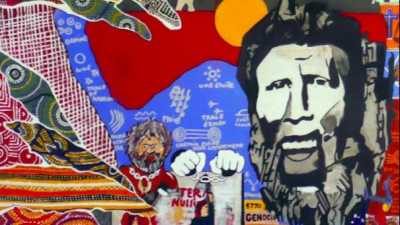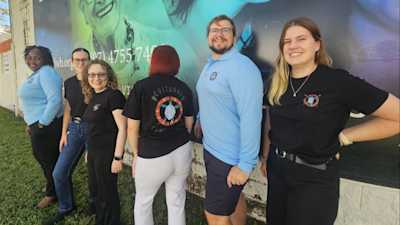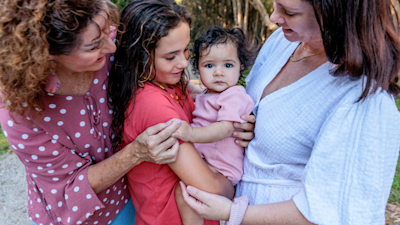Reconciliation must live in the hearts and minds of all Australians.
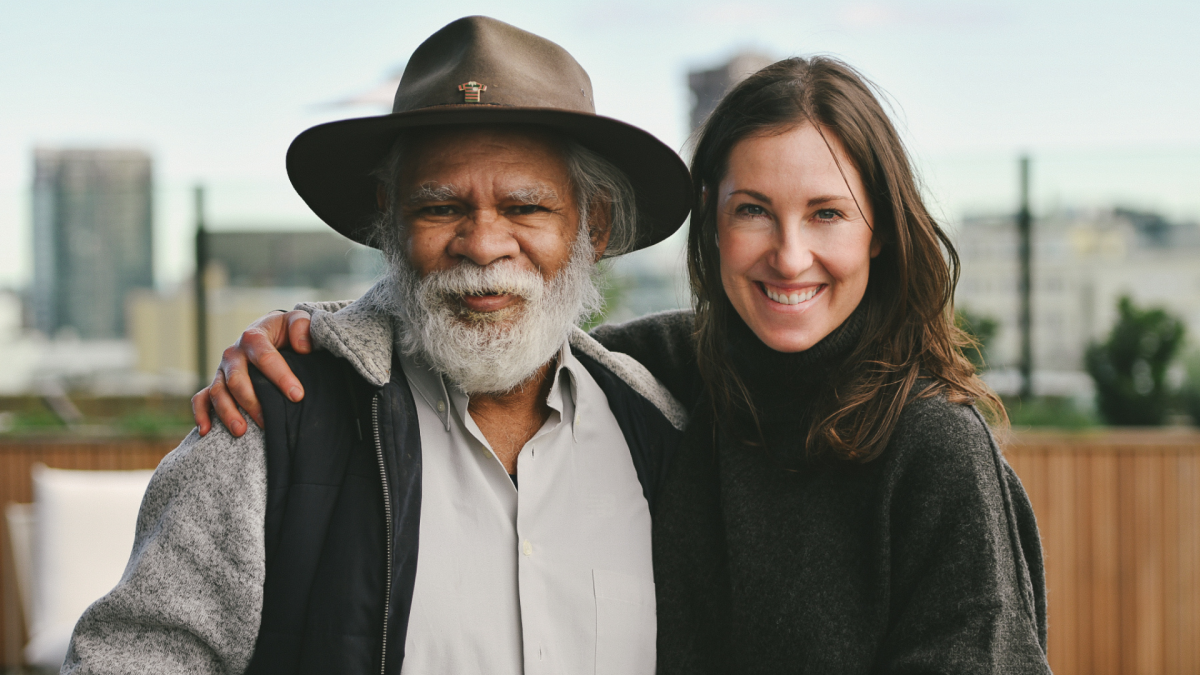
Image: An older man wearing a shirt, jacket and a broad-brimmed hat stands next to a woman with shoulder-length brown hair wearing a charcoal shirt, smiling at the camera.
Reconciliation is an ongoing journey between Aboriginal and Torres Strait Islander communities and non-Indigenous Australians. As part of this journey, we must reflect and acknowledge the past and strive toward healing and understanding.
Reconciliation is not just about acknowledging the past; it is also about working together to create a better future where individuals, communities, organisations, and the government foster mutual respect, understanding, and equality in the pursuit of social justice, recognition, and empowerment for Aboriginal and Torres Strait Islander peoples.
Our commitment to Reconciliation
Life Without Barriers is firmly committed to Reconciliation. We acknowledge Aboriginal and Torres Strait Islander people as the original custodians of the land and strongly believe in recognising, respecting, and advancing the inherent rights, cultures and traditions of Aboriginal and Torres Strait Islander people and communities.
We also acknowledge the importance of family, cultural and community ties for Aboriginal and Torres Strait Islander people. We must make big strides if we are to impact future generations for positive change.
Through our Elevate RAP, we have committed to contribute towards reducing the overrepresentation of Aboriginal and Torre Strait Islander children in out-of-home care by working in partnership with SNAICC and other Aboriginal Community Controlled Organisations, placing decision-making about Aboriginal and Torres Strait Islander children where it belongs – with family and communities.
Read about our partnership here.
We have put together a list of campaigns that we support, which you can too.
1. The Uluru Statement from the Heart
The Uluru Statement from the Heart is an invitation to the Australian people. The statement asks Australians to walk together to build a better future by establishing a First Nations Voice to Parliament enshrined in the Constitution, and the establishment of a Makarrata Commission for treaty-making and truth-telling.
Life Without Barriers supports the Uluru Statement from the Heart in its entirety. Read our statement here.
Visit The Uluru Statement from the Heart Website to learn more.
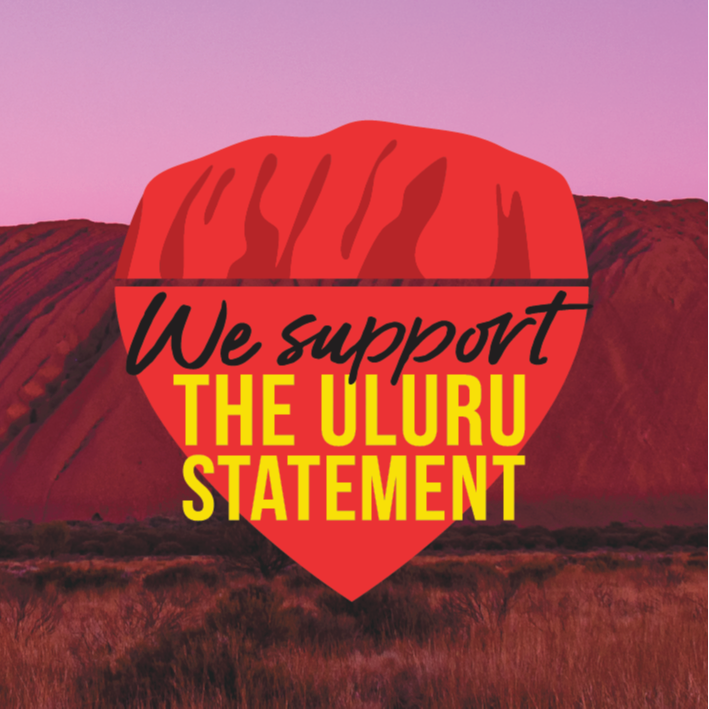
2. Close the Gap
Aboriginal and Torres Strait Islander peoples live, on average, 10-11 years less than non-indigenous peoples. The Close the Gap campaign calls for governments to address health and other inequalities that disproportionately affect First Nations Peoples.
The Coalition of Peaks, together with Australian governments and the Close the Gap Campaign, are working to achieve 17 socio-economic targets set out in the 2020 National Agreement on Closing the Gap by 2031.
The foundation of these 17 targets are the four priority reform areas:
Shared decision-making, where Aboriginal and Torres Strait Islander people are empowered to share decision-making authority with governments.
Building the Aboriginal and Torres Strait Islander community-controlled sector.
Improving mainstream institutions to be culturally safe and responsive to the needs of Aboriginal and Torres Strait Islander people.
Aboriginal and Torres Strait Islander people have access to, and the capability to use and lead locally-relevant data, to set and monitor Close the Gap efforts.
You can take action by taking part in the ANTaR Sea of Hands, fundraising in your community, or signing the Campaign for Change pledge and learning about how your state and federal governments are proposing to work towards closing the gap.
In February 2024, The Productivity Commission’s first review of the National Agreement on Close the Gap was released. The report confirms that despite substantial investment, Australian Governments need to radically and urgently change their approach if we are to try to have an impact on generations now and in the future. There are many recommendations listed, including overhauling Government systems and responses so that solutions are led by First Nations people.

Image: Graphic with an image of Uluru and text. Text reads: Support. Truth. Treaty & Voice. Pledge Now!
3. Change the Record
The Change the Record campaign has a mission to end the incarceration of, and family violence against, Aboriginal and Torres Strait Islander people.
Change the Record focuses on building stronger and safer communities through the following campaigns:
To achieve their goals, Change the Record is campaigning for the Australian Government to work with Aboriginal and Torres Strait Islander communities to invest in holistic early intervention, prevention and diversion strategies. These strategies are aimed at increasing safety, addressing the root causes of violence against women and children, cutting reoffending and imprisonment rates, and building stronger communities.
You can take action by emailing your state MP (Change the Record has provided a template for you) or by donating.
Visit the Change the Record website to learn more.
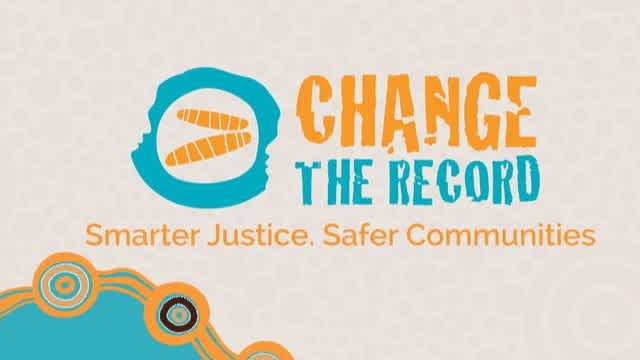
4. Raise the Age
In Australia, primary school-aged children can be arrested by police and incarcerated. Raise the Age is a campaign calling for politicians to raise the age of criminal responsibility to at least 14 years old. The campaign also advocates for investment in community-led interventions and support to help children learn from their mistakes, grow, and thrive.
Read our statement on #RaiseTheAge here.
You can take action by signing the petition or by emailing your state MP (Raise the Age has provided a template for you).
Visit the Raise the Age website to learn more.
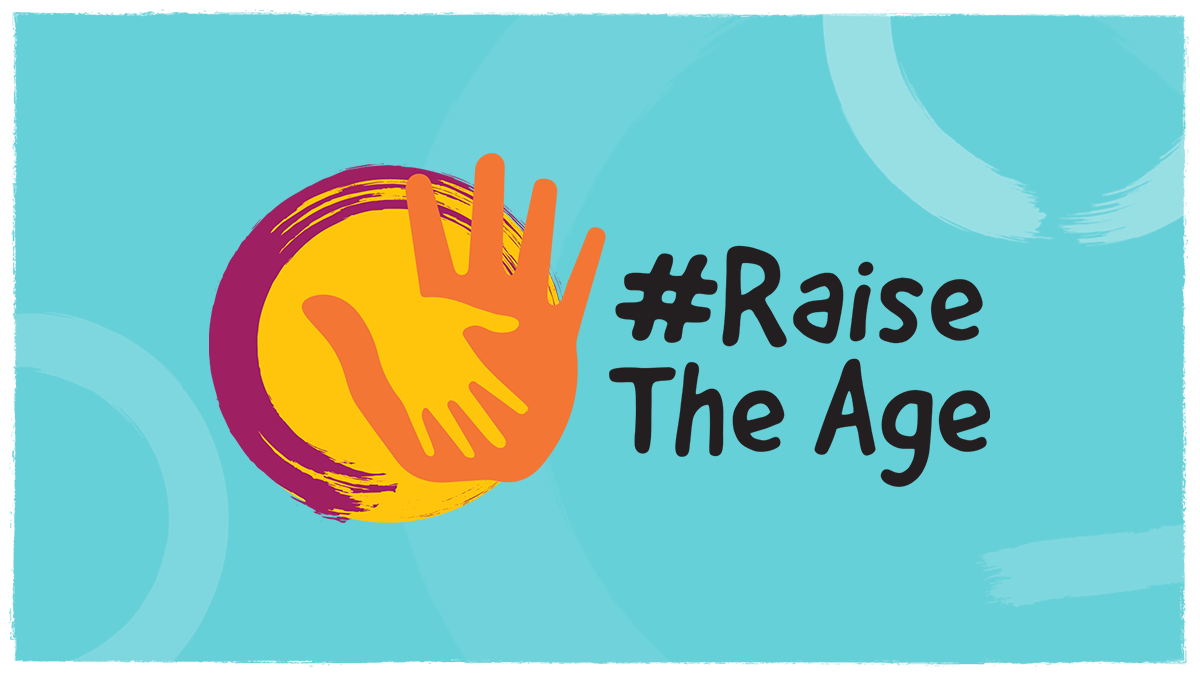
5. Family Matters: Strong Communities. Strong Culture. Stronger Children.
The rate of Aboriginal and Torres Strait Islander children in out-of-home care is almost ten times that of other children. The Family Matters campaign, led by SNAICC – National Voice for Our Children, aims to eliminate the over-representation of Aboriginal and Torres Strait Islander children in out-of-home care by 2040. A key focus of the campaign is to ensure Aboriginal and Torres Strait Islander children and young people grow up safe and cared for in family, community, and culture.
Aboriginal and Torres Strait Islander children are now 11.5 times more likely to be placed in care than non-Indigenous children.
Through the Transformation Project, Life Without Barriers is actively working towards transitioning Aboriginal and Torres Strait Islander children to community control and leveraging our strong partnerships across the child, youth and family sectors in jurisdictional areas to support the Family Matters Campaign.
You can take action by becoming a member of SNAICC or by donating.
Visit the SNAICC website to learn more.
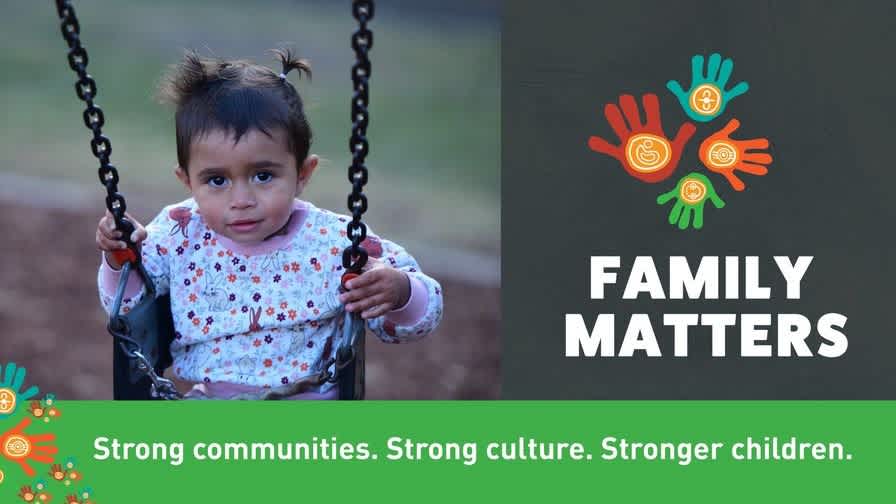
Our commitment to raising awareness
We are committed to an ongoing journey to raise awareness and work towards ensuring Aboriginal and Torres Strait Islander people have access to the same opportunities as all Australians.
While we are working tirelessly in practical ways to bring about real change – advocating for children and young people, improved employment, and education – we also want to change attitudes.
We believe that Reconciliation must live in the hearts and minds of all Australians. As a nation, we need to work together to close the gap by improving the cultural, spiritual and emotional well-being of Aboriginal and Torres Strait Islander peoples.
